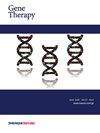Gene drives: an alternative approach to malaria control?
IF 4.5
3区 医学
Q1 BIOCHEMISTRY & MOLECULAR BIOLOGY
引用次数: 0
Abstract
Genetic modification for the control of mosquitoes is frequently touted as a solution for a variety of vector-borne diseases. There has been some success using non-insecticidal methods like sterile or incompatible insect techniques to control arbovirus diseases. However, control by genetic modifications to reduce mosquito populations or create mosquitoes that are refractory to infection with pathogens are less developed. The advent of CRISPR-Cas9-mediated gene drives may advance this mechanism of control. In this review, use and progress of gene drives for vector control, particularly for malaria, is discussed. A brief history of population suppression and replacement gene drives in mosquitoes, rapid advancement of the field over the last decade and how genetic modification fits into the current scope of vector control are described. Mechanisms of alternative vector control by genetic modification to modulate mosquitoes’ immune responses and anti-parasite effector molecules as part of a combinational strategy to combat malaria are considered. Finally, the limitations and ethics of using gene drives for mosquito control are discussed.


基因驱动:疟疾控制的另一种方法?
控制蚊子的转基因技术经常被吹捧为解决各种病媒传播疾病的方法。使用非杀虫方法,如不育或不相容昆虫技术来控制虫媒病毒疾病,已经取得了一些成功。然而,通过基因改造来减少蚊子数量或创造对病原体感染有抵抗力的蚊子的控制方法还不太成熟。CRISPR-Cas9 介导的基因驱动技术的出现可能会推进这种控制机制。本综述将讨论基因驱动在病媒控制(尤其是疟疾)方面的应用和进展。简要介绍了蚊子种群抑制和替代基因驱动的历史、过去十年该领域的快速发展以及基因改造如何融入当前的病媒控制范围。还考虑了通过基因改造调节蚊子的免疫反应和抗寄生虫效应分子来替代病媒控制的机制,以此作为防治疟疾综合战略的一部分。最后,讨论了使用基因驱动控制蚊虫的局限性和伦理问题。
本文章由计算机程序翻译,如有差异,请以英文原文为准。
求助全文
约1分钟内获得全文
求助全文
来源期刊

Gene Therapy
医学-生化与分子生物学
CiteScore
9.70
自引率
2.00%
发文量
67
审稿时长
4-8 weeks
期刊介绍:
Gene Therapy covers both the research and clinical applications of novel therapeutic techniques based on a genetic component. Over the last few decades, significant advances in technologies ranging from identifying novel genetic targets that cause disease through to clinical studies, which show therapeutic benefit, have elevated this multidisciplinary field to the forefront of modern medicine.
 求助内容:
求助内容: 应助结果提醒方式:
应助结果提醒方式:


